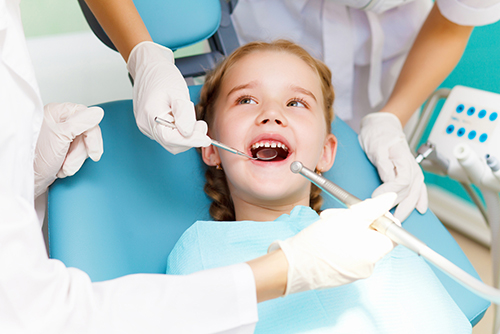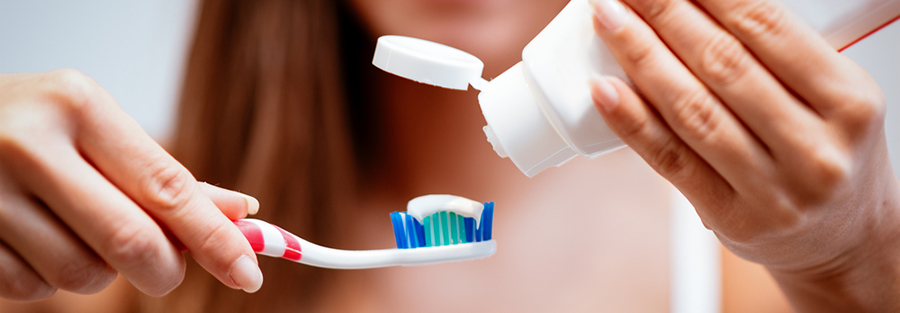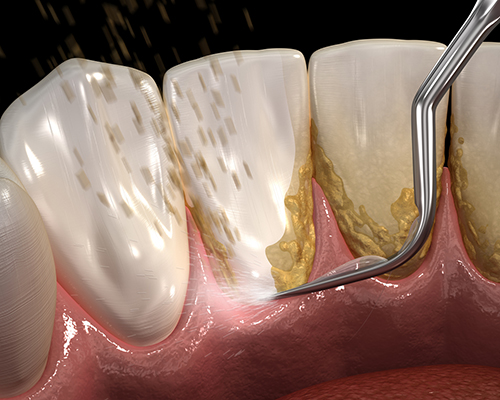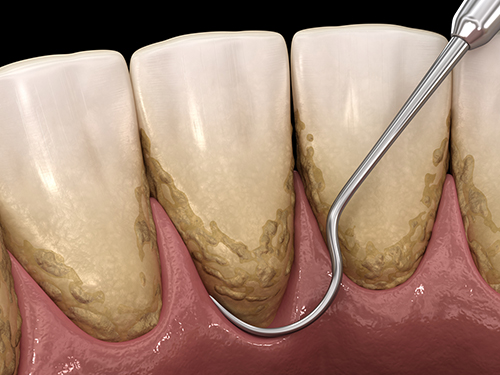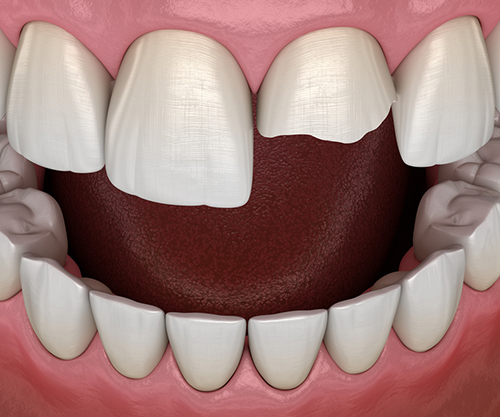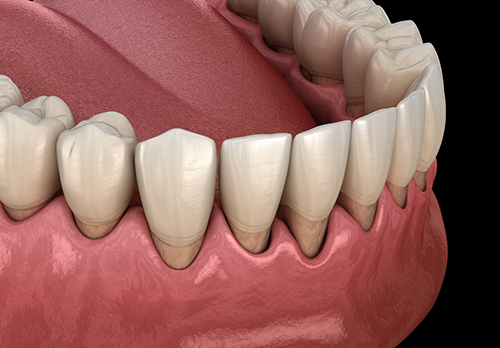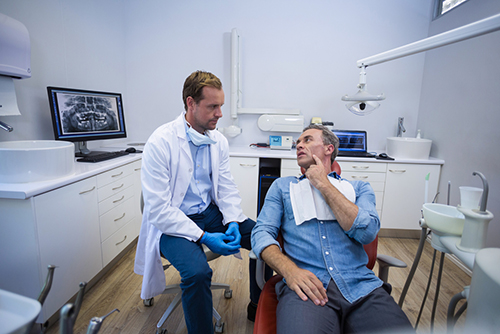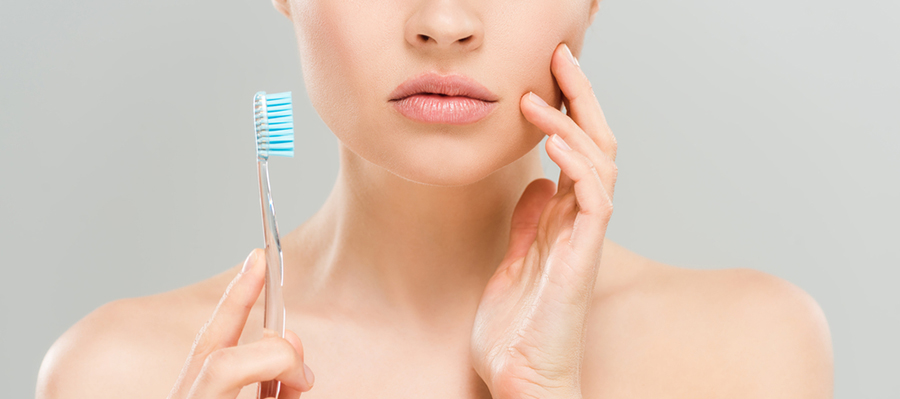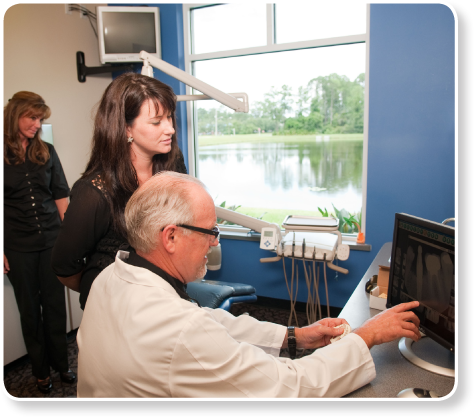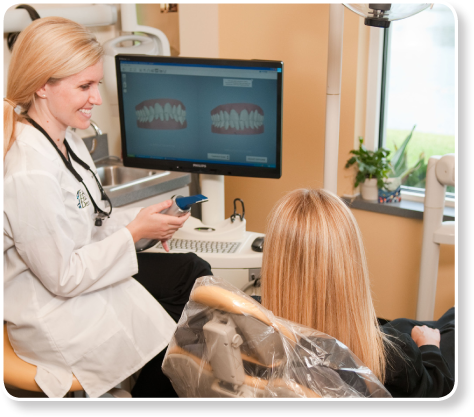How Often Should You Go to the Dentist?
Jan 9, 2023
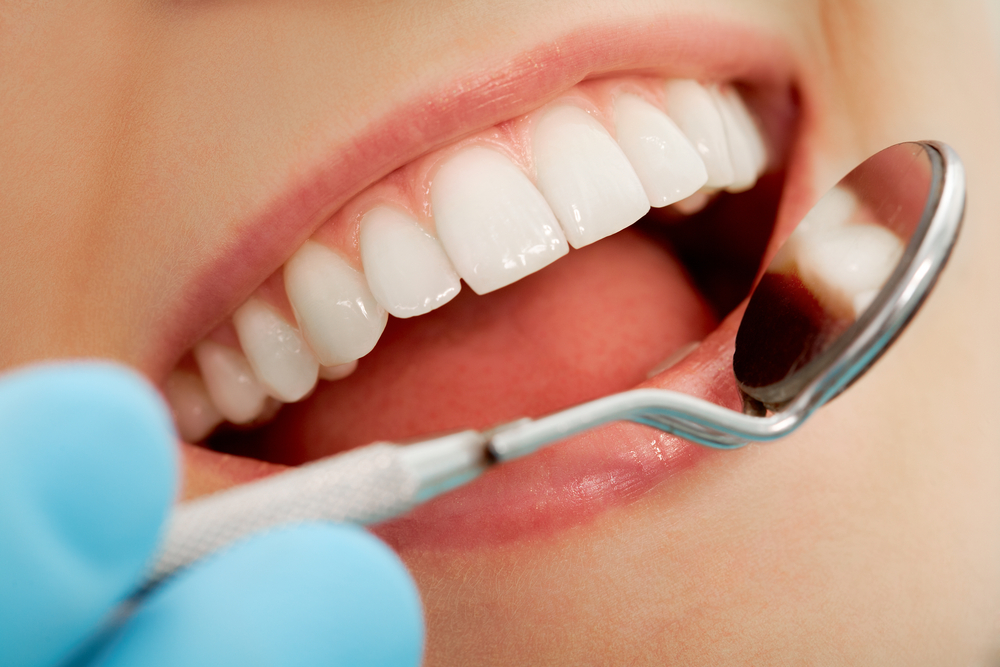
The average person should have two cleanings a year, one every six months. But, 42% of Americans stated they do not see their dentists as often as they would like to, falling below at least one yearly cleaning. With 85% of Americans considering oral health to be ‘very’ or ‘extremely’ important for their health. Yet just under a quarter of adults state they will not or are unsure about visiting the dentist for standard cleanings in the upcoming year. This number rises when considerations of cost, time, and perceived health are included.
Dental Visit Frequency for Adults

If you have no present oral diseases and no family history of oral concerns then one cleaning every six months is the standard frequency of dental visits for adults. At the very least once a year is recommended.
Regularly visiting the dentist for cleanings allows you to fend off gum disease and cut back on tooth decay and loss. Your dental hygienist will clean your teeth of tartar and plaque buildup. This means decreased chances of dental conditions cropping up down the road.
Who Should See the Dentist More Often?
While once to twice each year is the best rule of thumb for the average person, certain factors can increase the necessity for more frequent cleanings.
If you have a history of oral health problems or periodontal disease you’ll need to schedule cleanings more frequently than twice a year. The following situations should also result in more frequent dental visits to maintain the health of your teeth and gums:
You’ll need to discuss with your dentist what the best cleaning schedule is for you to maintain your condition.
Dental Visit Frequency for Kids
Your child’s first dentist appointment should be scheduled within six months of the first tooth coming in. If this doesn’t occur within the first year, you should take your child to the dentist by their first birthday. These first appointments focus more on helping your child become comfortable with the dentist’s office over providing care to the teeth.
After their first dentist appointment, your child will need to see the dentist every six months. If your child develops one of the following problems you may need to schedule more frequent appointments:
When Should Your Child See the Dentist More Often?
If your child is at high risk for tooth decay or other oral health problems, their dentist will likely recommend more frequent dental check-ups. Discuss with your child’s dentist any concerns you have to determine the best cleaning and check-up schedule.
What Happens If You Don’t Go to the Dentist?
Regular dentist appointments help to mitigate future oral health problems. When you begin to avoid going it can increase your risks for problems such as gum disease. 44% of the world’s population is living with untreated oral conditions. These conditions can lead to pain, eating and sleeping disruptions, and other disruptors to quality of life if left unchecked.
Visual Imperfections
If you’re a fan of coffee or wine there’s a good chance your pearly whites will take a hit. This doesn’t necessarily mean you have to cut coffee and other treats from your diet altogether. Going to the dentist regularly can help you keep an eye on these visual imperfections as they set it. Regular cleanings can help kick oral bacteria to the curb and if necessary, your dentist can incorporate a whitening cosmetic treatment into your yearly dental plan.
You’re at risk of developing teeth staining when you regularly consume the following foods and beverages:
Chances are you’re a fan of at least one of these stain-causing snacks and drinks. Especially among coffee drinkers, cutting out the product entirely is not an option. When you don’t want to cut out the stain-causing item, turn to these habit changes to help prevent stains from setting in:
Staining sets in over years of consuming stain-causing liquids. This means you should take active and consistent steps to prevent staining or handle existing staining. While you can incorporate many at-home treatments and habits to avoid visual imperfections in your teeth, it won’t completely prevent staining. Visiting your dental professional once to twice a year can help combat staining with deep cleanings.
Plaque Build-Up
Within 48 hours of plaque-forming, it hardens on your teeth. From there it becomes tartar over a period of roughly 12 days, at which point you will need professional dental treatment to remove it. By seeing your dentist regularly you can fight off plaque and tartar before it has a chance to completely wreak havoc on your teeth. But, if you avoid the dentist and tartar sets in you could find yourself dealing with the following aggravating and sometimes painful side effects:
But, what exactly are plaque and tartar? Plaque is a bacteria-containing mixture of food particles and minerals from your saliva which then form on and in crevices around your teeth. Tartar, which forms from hardened plaque, is a porous deposit that is brown or yellow in color.
You can prevent plaque build-up on your teeth by keeping up with the following oral health habits:
Because plaque and tartar can so easily and quickly form on your teeth, it’s important to regularly see a dentist even if you practice all of the standard oral hygiene recommendations.
Gingivitis
Gingivitis takes hold after plaque irritates the gums. There is no set time for gingivitis to set in as plaque builds up more quickly in some mouths than others but it is more common in those who avoid regular dental cleanings and don’t practice good oral hygiene. The signs of gingivitis include:
You can prevent gingivitis by using the following oral health practices:
- Brushing regularly and replacing your toothbrush every three months
- Use antibacterial toothpaste and mouthwash
- Regular dental cleanings
If you suspect you already have gingivitis you aren’t stuck with the condition forever. You can treat gingivitis by:
Once you take proactive measures to treat your gingivitis you can expect it to clear up within 10 to 14 days. More serious cases may take even longer. Regular dentist visits will keep your teeth in check and prevent any future cases of gingivitis.
Cavities
Cavities are caused by plaque formation that attacks the enamel of the tooth causing decay. Certain people are more predisposed to developing cavities. This includes babies who develop baby bottle tooth decay from sipping on juice or milk over a period of time. Others with a heightened risk of cavities include those with dry mouth, GERD, or an eating disorder. Symptoms of cavities include:
While you may be able to slow further decay, you cannot make a cavity go away on its own. It will take professional dental care to rectify. Your dentist will determine the correct treatment of your cavity based on severity, these treatments include:
You might not be able to stop a cavity once it’s started but you can stop one before it starts. Preventing cavities takes regular oral care, including:
Regular visits to your dentist will help keep your mouth healthy and cavity-free by managing plaque build-up, removing tartar, and monitoring to treat any concerning signs before they further develop. If you’re someone who is more predisposed to develop cavities consider speaking with your dentist about sealants and fluoride or antibacterial treatments.
Cracked and Broken Teeth
Cracked and broken teeth can be unsightly and uncomfortable. Without proper care of your mouth you will be more susceptible to cracked teeth. Common symptoms those with cracked teeth experience include pain, sensitivity, and swelling. The top causes of cracked teeth are:
There are different types of teeth cracks and breaks which will need different treatments to fix. The common teeth cracks include:
If your dentist determines the crack is severe enough to need treatment they will likely schedule you for a bonding, crown, root canal, or extraction to handle the problem. You can’t treat a cracked tooth at-home but you can take preventative measures to avoid cracking or broken teeth. Prevention of cracked or broken teeth entails the following practices:
Getting into the dentist’s office for regular cleanings can help keep your teeth strong and healthy, lowering your risks of teeth cracks.
Periodontitis
This serious infection of the gums can be irreparably damaging to your teeth and bones if allowed to progress for too long without treatment. It is caused by the buildup of bacteria and starts as gingivitis. You’re more likely to develop periodontitis if you smoke, are immuno-compromised, are obese, or have type 2 diabetes.
There are three main stages of periodontitis. The final stage causing advanced deterioration and potential loss of all teeth. The symptoms of periodontitis include:
Prevention of periodontitis includes general oral hygiene and regular dentist visits for professional cleanings. If you do develop periodontitis you will likely be treated with antibiotics and professional cleaning. The final stages of periodontitis will increase your chances of needed surgery as part of your treatment plan.
General Health Problems Cause by Dental Problems
Oral health problems aren’t the only problems that pop up due to poor dental care. Your mouth gives access to your respiratory and digestive systems. And while your mouth contains plenty of bacteria, it’s generally ‘good’ bacteria. But, when you avoid practicing good oral hygiene it can result in additional overall health problems as ‘bad’ bacteria begin to populate your mouth.
Inflammation and infections caused by oral bacteria could be linked to heart disease, endocarditis, and pneumonia. Expectant mothers should also be careful to practice good oral hygiene as developing periodontitis has been linked to birth complications and premature births.
Having health conditions that originate elsewhere in the body can also result in problems with your oral health. If you have any of the following conditions, consult with your dentist about any additional preventative dental treatment you’ll need to combat the side effects of the condition:
How to Improve Your Oral Health
With a combination of habit changes and professional dental care, you can work to improve your oral health over time. This will help to prevent diseases from setting in or causing general health problems that stem from oral health conditions.
Improve Oral Hygiene Habits
Take the time to access your current oral hygiene care habits. If you’re skipping out on flossing every day or eating too many sugary foods, you could be hurting your teeth. Even with regular cleanings, you’ll need to do your part at home by keeping a healthy diet and practicing daily oral care.
You should be adhering to these basic oral hygiene health habits:
Take Probiotics
Research is still in the works to determine how effective probiotics are in promoting oral health. But results so far have been promising.
Incorporating probiotics into your diet or via supplemental capsules can help to fend off halitosis and decrease the side effects of periodontal disease.
How can you boost probiotic intake in your day-to-day life? Check out these foods and supplement options:
Schedule a Cleaning
Having your teeth cleaned regularly by a dental professional can help keep your teeth in top condition. Cleanings also give professionals the opportunity to identify and treat any concerns before it develops further.
Need to get caught up on dental cleanings?
Call to schedule your appointment!
(904) 269-6558
or
Fill Form To Schedule Your Appointment
For informational purposes only.

